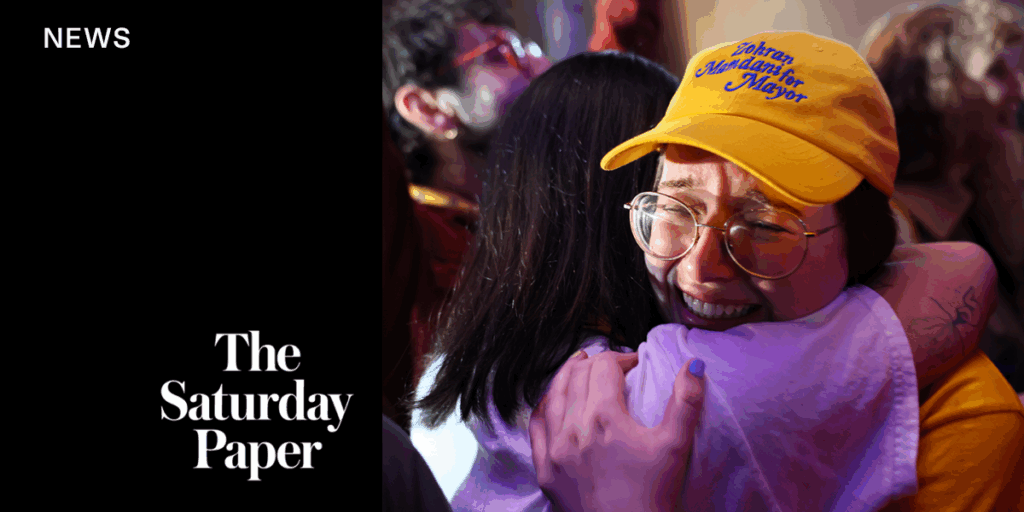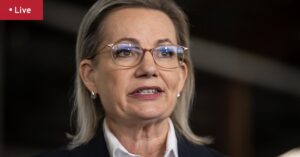
In a groundbreaking election that has captured national attention, Zohran Mamdani, a Democratic Socialist, was elected as the mayor of New York City on Wednesday. Mamdani’s victory marks a series of firsts: he is the city’s first Muslim mayor, the first born in Africa, and the youngest to hold the office since 1892. His campaign promises to make buses and childcare free and freeze rents in rent-controlled apartments resonated with voters, securing him 50 percent of the vote.
Mamdani’s main opponent, Andrew Cuomo, an independent candidate endorsed by former President Donald Trump, garnered 42 percent of the vote. Cuomo, who resigned as New York’s Democratic governor in 2021 amid sexual harassment allegations, was unable to overcome Mamdani’s grassroots appeal and progressive platform.
Political Shifts and Implications
The election of Mamdani comes at a time when the Democratic Party is grappling with its identity in the post-Trump era. His win, alongside decisive Democratic victories in the governor races of Virginia and New Jersey, has buoyed the party’s spirits as it approaches the midterm elections. The results highlight a potential pivot towards a more progressive agenda, as embodied by Mamdani, or the need to balance between progressivism and traditional centrism.
During his victory speech, Mamdani addressed the former president directly:
“Hear me, President Trump, when I say this: To get to any of us, you will have to get through all of us.”
His words reflect a defiant stance against threats made by Trump, who had previously suggested cutting federal funding to New York and deploying the National Guard if Mamdani were elected.
Challenges and Controversies
Mamdani’s campaign was not without its controversies. He faced criticism for his refusal to condemn the phrase “globalise the intifada” and for his sharp criticisms of the New York Police Department, which he described as racist and corrupt. In response, Mamdani promised to lead an inclusive administration and issued an apology to the police, while maintaining his pro-Palestinian activism stance.
His election represents a significant shift in New York City’s political landscape, reflecting broader national trends towards progressive policies. The Democratic Party now faces the challenge of integrating Mamdani’s vision with more traditional elements within the party.
Historical Context and Expert Opinions
Zohran Mamdani’s rise to prominence is reminiscent of other progressive figures who have reshaped American politics in recent years. His use of social media to build a devoted following echoes the strategies of politicians like Alexandria Ocasio-Cortez, who have successfully leveraged digital platforms to engage younger, more diverse voter bases.
Political analysts suggest that Mamdani’s victory could serve as a blueprint for Democrats seeking to energize their base and attract new voters. According to political strategist Sarah Johnson,
“Mamdani’s win is a testament to the power of grassroots organizing and the appeal of bold, transformative policies.”
She notes that his success may encourage other Democratic candidates to adopt similar platforms in the upcoming elections.
Looking Ahead
As Mamdani prepares to assume office, he faces the daunting task of delivering on his ambitious campaign promises. His administration will need to navigate the complexities of implementing policies like free public transportation and affordable childcare while managing the city’s budgetary constraints.
The Democratic Party, meanwhile, must decide how to harness the momentum generated by Mamdani’s victory. The midterm elections will serve as a critical test of the party’s ability to unify its diverse factions and present a cohesive vision to the American electorate.
Zohran Mamdani’s election as mayor of New York City is more than just a local victory; it is a signal of changing tides in American politics. As the nation watches, Mamdani’s tenure will likely influence the Democratic Party’s direction and strategy in the years to come.







